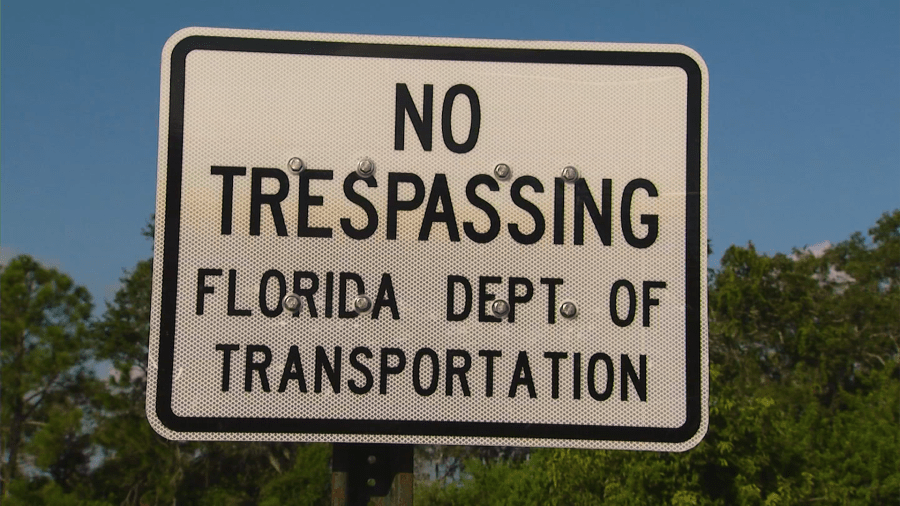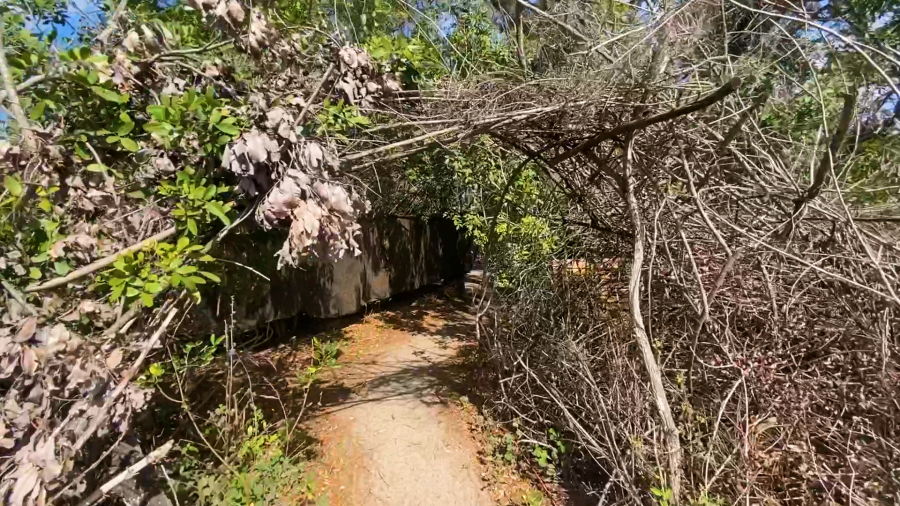PINELLAS PARK, Fla. (WFLA) – The sex offenders who claim they were told to live in a wooded area on state land have to vacate the camp and they are running out of time.
It has been several months since the offenders built a structure to cover their tents and added a generator and solar charging station to keep their ankle monitors going and avoid violating the terms of their probation.
Camp residents said they received a 10-day notice to vacate the property.
“FDOT will clear this property and any remaining items will be disposed of and any remaining people will be cited for trespassing,” the notice said.
Public not warned about sex offender camp growing in Tampa Bay woods
The deadline to move is next Tuesday.
Residents said the eviction is unfair since they claim they were told to live on the lot by Florida Department of Corrections (FDC) personell.
“Yes,” one resident said when asked if his probation officer told him to live there. “They actually brought me out here.”
State Rep. Lindsay Cross’s district includes the property. Cross said since the initial story aired, she has been contacted by others who have seen similar camps in their communities.
“I think that’s what this story brought to light is that there are places like this,” Cross said.

The Florida Department of Transportation (FDOT) owns the land but did not know the camp was there, according to an FDOT spokesperson. After the first 8 on Your Side report on the controversy, FDOT put up no trespassing signs on the property.
Residents and business owner said they were not alerted either and the state sex offender registry lists a different intersection about a mile away from the camp as the address for the homeless offenders.
Sex offender camp to be cleared after 8 On Your Side report
FDC spokesperson Paul Walker said the department “does not assign residence locations.”
8 on Your Side has also heard from offenders from throughout the state who claim they were told to live in wooded areas by probation officers in several other counties including Hillsborough, Hernando, Manatee, Flagler, Brevard, and Palm Beach.
Walker has not responded to questions about whether FDC alerted FDOT about the Pinellas Park camp that offenders said was visited multiple times by probation officers who were checking on them.
Residents who asked not to be identified said they are not a threat to the community and should not have to move. They also said they “police” the camp themselves and get rid of drug users and anyone who is not trying to better themselves.
One resident said state officials gave them a paper with addresses of two motels that would take them, with the state covering a week of rent.

Cross said the Pinellas Park case is an example of a lack of communication between two state departments.
“We need to have the agencies talking to each other and making sure there are solutions for these people and that we’re protecting our residents,” Cross said.
‘I don’t owe them anything’: Unemployment glitch told St. Pete woman to cough up $11K
Cross said knowing about the camps is the first step toward finding a long term solution involving some sort of housing for offenders after they leave prison.
“The first way to find solutions is to have the awareness that it’s happening,” Cross said. “Being able to reach out to people who’ve been affected to elevate this issue is where we have to start and that’s what we’re doing.”
Cross agreed that while it will require state funding to solve the problem, it would cost more if residents of camps like the one in Pinellas Park re-offend and get sent back to prison.






